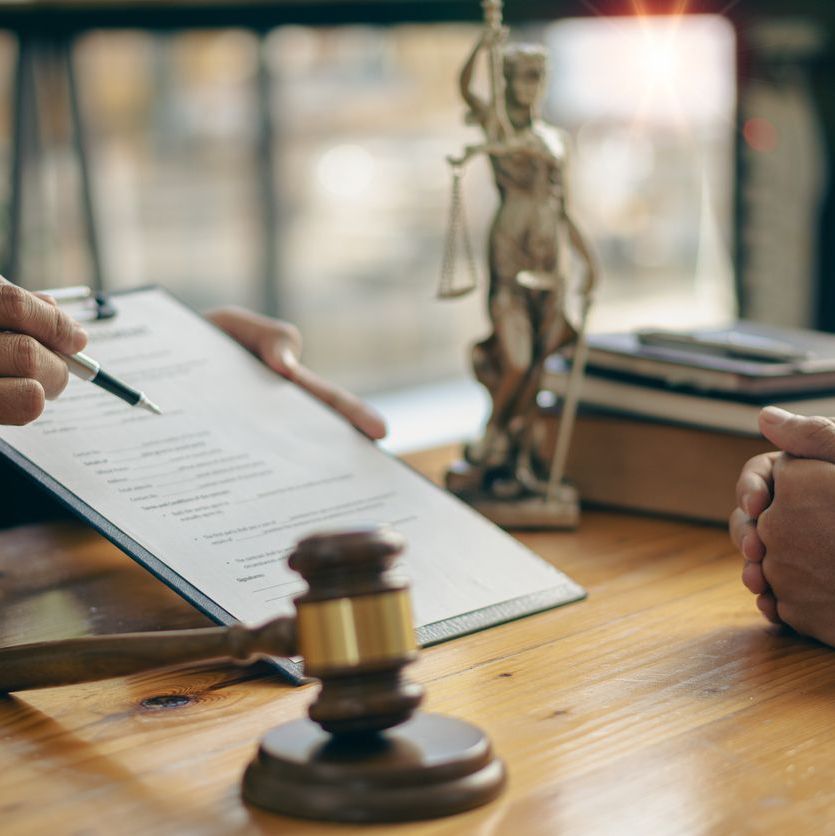Recognizing the Role of a Post-Conviction Attorney in Seeking Justice After a Criminal Sentence
In the facility landscape of post-conviction lawful procedures, the role of a post-conviction legal representative is crucial in browsing the path to justice after a criminal sentence. Past the confines of a test, these attorneys take part in a multifaceted strategy aimed at revealing new evidence, challenging legal mistakes, and supporting for their clients' rights. The intricacies of post-conviction job need a mix of lawful acumen, investigative abilities, and calculated thinking to untangle the intricacies of a case and seek opportunities that might have been ignored or underexplored. As the pursuit of justice expands beyond the boundaries of preliminary process, the function of a post-conviction legal representative arises as a sign of expect those looking for to remedy injustices and recover their rights within the legal system.
Post-Conviction Lawyer's Investigatory Work
Post-conviction legal representatives participate in precise investigative work to discover new proof, procedural mistakes, or transgression that could potentially bring about reversing a conviction. This investigatory phase is important in the post-conviction process as it intends to identify any kind of ignored details or lawful missteps that might have impacted the result of the initial test. Post-conviction attorneys look into situation files, witness statements, and lawful paperwork with a fine-tooth comb, looking for any type of disparities or irregularities that might be grounds for charm.
Via complete investigation, post-conviction attorneys intend to clarify prospective oppressions that may have happened throughout the original trial. They might conduct interviews, seek advice from with experts, and evaluation forensic proof to build a compelling situation for their customers. By scrutinizing every element of the lawful process, post-conviction attorneys work relentlessly to reveal any elements that might have affected the verdict. Ultimately, their investigative job plays a crucial role in the search of justice and the potential reversal of wrongful convictions.
Crafting Appeals and Petitions
In the quest of justice after a conviction, knowledgeable legal representatives meticulously craft appeals and petitions to present engaging debates for the reconsideration of lawful choices. Crafting allures and requests needs a deep understanding of the legal system, interest to detail, and tactical thinking. Post-conviction legal representatives assess test documents, determine prospective errors or violations of civil liberties, and create lawful disagreements to challenge the conviction or sentence.
When crafting an allure, legal representatives concentrate on highlighting legal errors that might have impacted the result of the case. They research instance legislation, statutes, and lawful criteria to support their arguments. Applications, on the various other hand, may entail offering new evidence that was not readily available during the test or showing modifications in the law that warrant a testimonial of the conviction.
Moreover, post-conviction legal representatives need to stick to rigorous procedural rules and target dates when filing allures and requests. They must offer their disagreements plainly and persuasively to persuade the court to grant alleviation to their clients. With thorough crafting of charms and petitions, post-conviction legal representatives strive to safeguard justice for individuals that have been wrongfully founded guilty or unjustly sentenced.

Pursuing Post-Conviction Alleviation
Post-conviction relief incorporates a variety of legal systems developed to test the credibility of a sentence or sentence. Post-conviction attorneys play an essential duty in navigating these intricate procedures, ensuring that all lawful alternatives are discovered to fix oppressions that may have happened during the test or sentencing stage.
One usual kind of post-conviction alleviation is submitting an application for post-conviction alleviation, typically based on claims of inefficient support of guidance, prosecutorial misconduct, newly discovered evidence, or constitutional violations. Experienced post-conviction lawyers possess the skills and expertise required to determine practical legal claims, carry out investigations, and present compelling debates to safeguard alleviation for their customers.
Using Forensic Evidence
When challenging a conviction or sentence, the strategic utilization of forensic proof can be an effective tool in post-conviction legal proceedings. Forensic proof incorporates a variety of scientific techniques made use of to explore criminal activities and develop truths in court. Post-conviction lawyers can leverage forensic proof to challenge the validity of sentences by offering new scientific searchings for that were not offered during the initial test.

Involving in Sentence Alterations
Post-conviction legal representatives might discover the opportunity of sentence alterations as a lawful opportunity to attend to disproportionate or unfair sentences bied far in criminal cases. Sentence modifications involve looking for adjustments to the regards to an accused's sentence after a conviction has happened. These modifications can consist of minimizing the size of a sentence, changing the kind of punishment enforced, or checking out alternate sentencing options.
Post-conviction lawyers can seek sentence alterations via different legal systems, such as filing movements for sentence reduction, appealing for compassionate release, or working out plea offers for decreased sentences. They have to meticulously assess the circumstances of the instance, evaluate the legal premises for looking for an adjustment, and present engaging arguments to the court sustaining the requirement for a revised sentence.
Involving in sentence adjustments calls for a detailed understanding of criminal legislation, sentencing guidelines, and the specific treatments involved in looking for post-conviction relief. Post-conviction attorneys play an important role in promoting for reasonable and just end results by difficult sentences that are unduly harsh or do not line up with the concepts of justice.
Final Thought
In verdict, the role of a post-conviction legal representative is important in looking for justice after a criminal conviction. With investigative work, crafting allures and requests, pursuing post-conviction alleviation, utilizing forensic evidence, and participating in sentence modifications, these attorneys play a vital function in supporting for their clients and making sure that their civil liberties are upheld within the criminal justice system. Their commitment and proficiency are necessary in browsing the complexities of post-conviction procedures and accomplishing a reasonable end result for individuals dealing with criminal convictions.
Comments on “Why You Need a Lawyer for Your Habeas Corpus Situation”